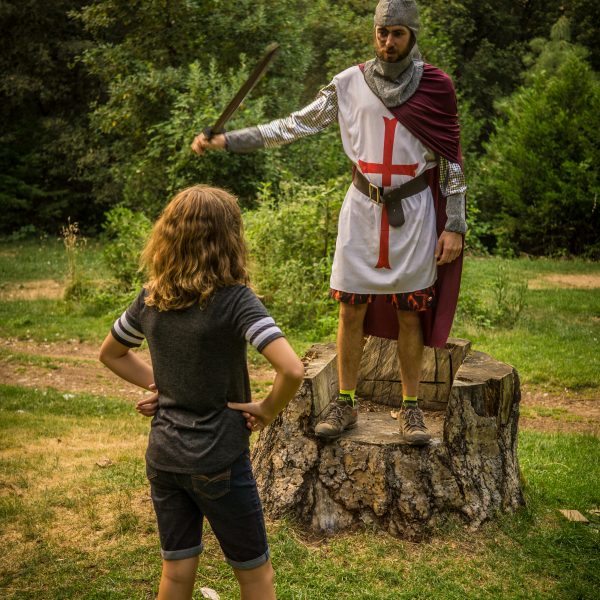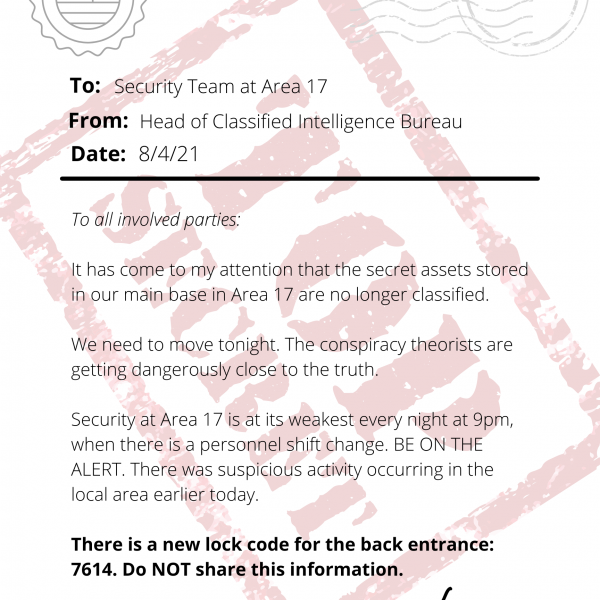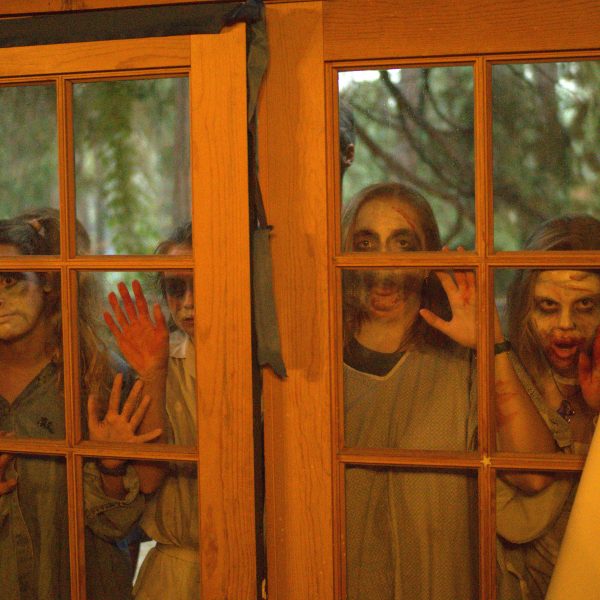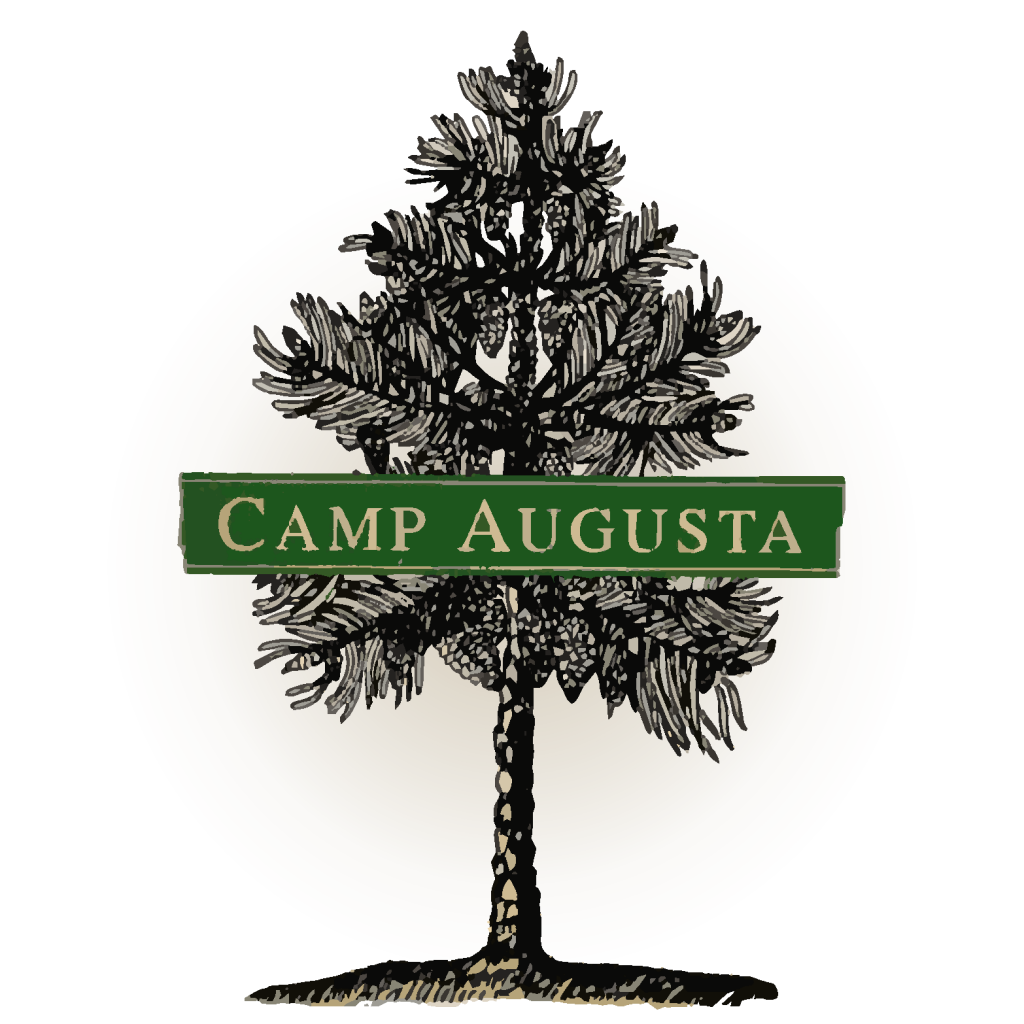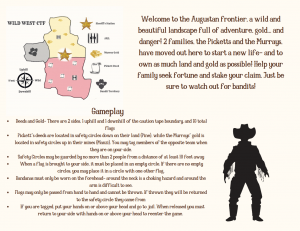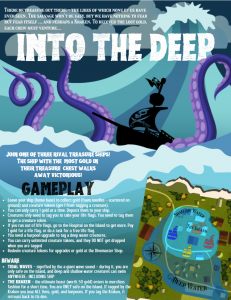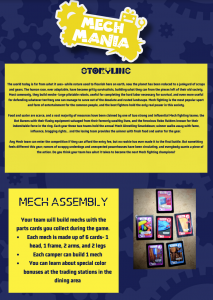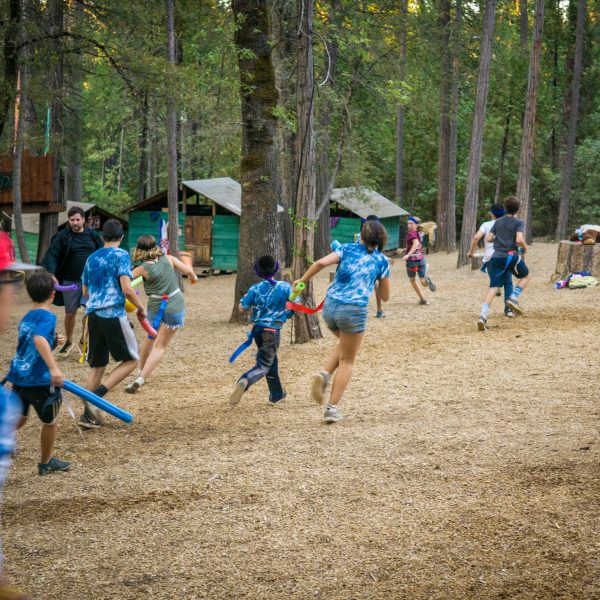
Camp Augusta takes Fun & Games quite seriously. As such, Masters of Fun & Games (MFG) are needed. This role may be filled by someone with prior summer camp experience who also has a passion for programming, OR someone who has a passion for interactive games with children, LARPing, immersive experiences, or general program management.
There are three MFGs during the summer and together they oversee three main domains:
- Evening Programs (frequently camp-wide games e.g. Capture The Flag)
- Playstations (unique, often silly, camper-choice activities)
- Story Experiences (special bonus experiences for individual cabins)
If you are interested in becoming a Master of Fun & Games at Camp Augusta, here is a quick overview of the FUN & GAMES and how MFGs are expected to MASTER each domain.
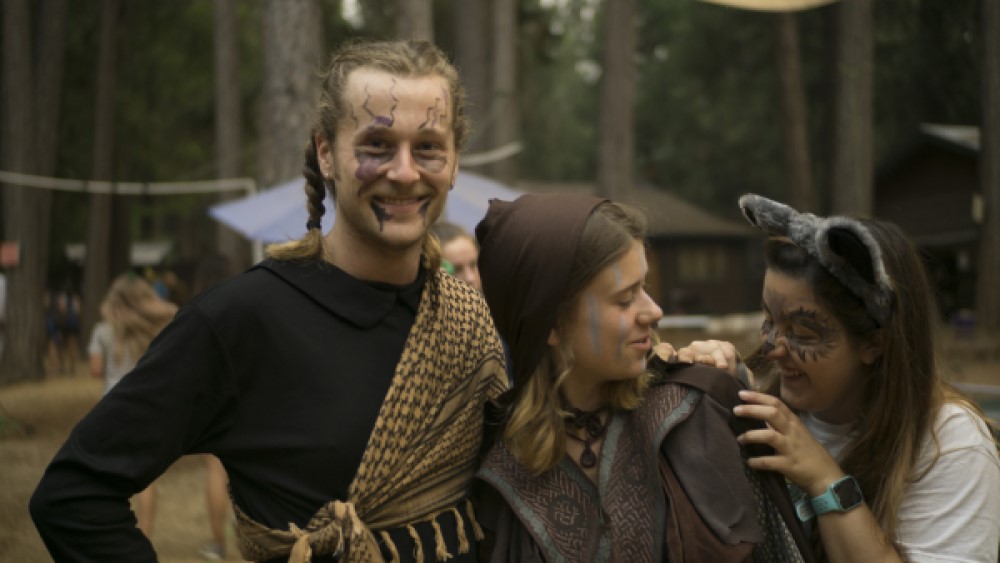
Evening Programs
Every night after dinner (and on weekends during two-week sessions) the entire camp comes together to play a completely original game. This means 100 campers + staff learn and participate in an hour-long game every night. Staff play as characters and/or adversaries in the games.
The games vary in theme, complexity, team division, and physical exertion. Below are three examples.
Capture The Flag (CTF)
Capture the Flag is the simplest game played at Augusta every summer. The camp is divided into two teams and campers try to steal “flags” from the other team. Each summer there is a different theme with special rules applied. For example, the above shows Wild West CTF. The special rules added were neutral bandits who would steal flags from both teams.
Into The Deep
Into The Deep is a three-team game with the theme of underwater treasure collection. The game has complex rules and abilities that allow campers to explore “deep water” and fight off sea creatures in pursuit of treasure. There is an in-game currency as well as periods of time where tidal waves change the rules and give sea creatures a hefty advantage. Into the Deep is a game with heavy exertion and has multiple paths to gain points.
Mech Mania
Mech Mania is a cabin vs. cabin game that takes place in a post-apocalyptic wasteland. The game has an abundance of stations led by different characters where the cabin groups must complete tasks together. Cards collected at stations can then combine into mechs at the end of the game. The scoring is complex and campers gain an advantage by diversifying their experiences within the cabin.
How to MASTER Evening Programs
- Evening Programs are selected and written every year during the off-season.
- Sometimes a past Master of Fun & Games is the one creating the game, but not always.
- In their final product, games often have hundreds of pages worth of documents that outline every station, character, and scoring mechanic.
- Every night, nearly every single staff member will play a role in the game.
- Before camp starts, the MFGs learn the game by understanding how all the mechanics, including stations, scoring, and special rules, work together. The MFG’s understanding of the game will be much more in-depth than other staff.
A potential MFG must be interested in game mechanics and be able to articulate rules and the big-picture goals of the game to individual staff.
During the summer, the MFGs are responsible for preparing the games each day. Each game has multiple costumes, stations, handouts, and props that need to be set up and organized. Organization and delegation are critical to getting each game prepped smoothly.
Additional tasks include assigning roles to staff and making sure everyone understands their responsibility during the game and how they fit into the broader picture of the game.
During Staff Training, every game is play-tested within the ~65 person staff group. During this time, staff learn the basics of how to play and their potential role during the summer. Staff rely upon the MFGs to help them understand the mechanics and clarify any questions/misunderstandings they may have.
In Summary
Evening Programs are the largest domain of MFGdom. To properly master this domain, MFGs must be able to memorize a detailed web of gameplay mechanics, organize multiple props and assets, and be able to strongly communicate gameplay needs to the entire staff team.

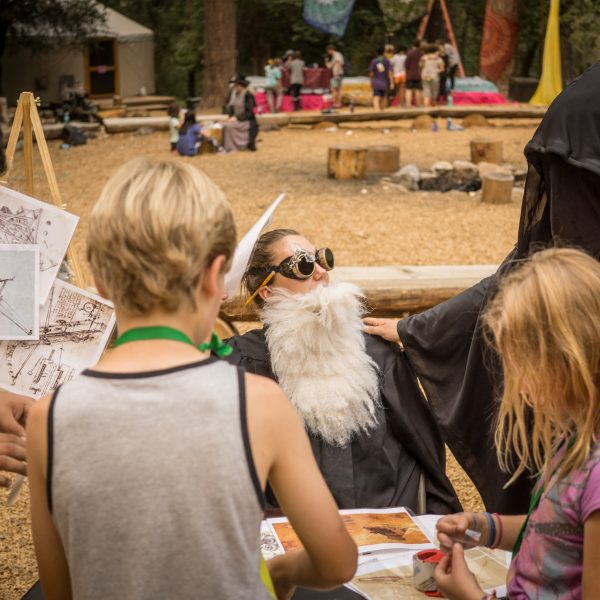
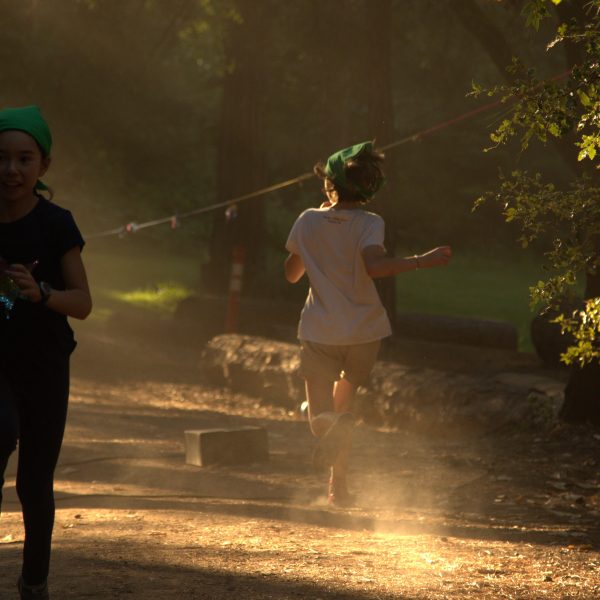
Playstation
‘Playstation’ is a camper-choice activity hour. At first glance, Playstation may seem similar to our Clinic periods. Let’s clarify the distinction.
Clinics: Every day, campers sign up for four clinics to participate in the following day. Clinics often have a skill attached to them. Clinics include arts, high-ropes, weapons, and beyond.
Playstation: Every day, campers meet in the dining area to hear ‘sells’. Sells are a brief period of time where staff leading the playstations encourage campers to join their activity. If clinics emphasize skill, playstations emphasize play. The types of play offered every day vary, but generally fall into a few core categories.
- Active (Tag games, silly sports)
- Chill (Board games, cards)
- Crafty (Makerspace, experimental crafts)
- Off-The-Wall (Very silly, imagination-based games and scenarios)
How to MASTER Playstations
- A different assortment of playstations are offered each day, but follow the core categories (i.e. active, chill, crafty, off-the-wall).
- There is a large database of playstations that contain instructions and tips/tricks for each one. Before staff arrive at camp, they are given an online introduction to these playstations and express interest in potential categories/activities.
- The MFG is then responsible for starting to pair staff with playstations based on interest, skill, and comfort level.
- Because a large database exists, it is less important for the MFGs to know the intricacies of each individual playstation.
- To properly master the organization of playstations, it is important to discover how individual staff are enjoying/facilitating their activities and to monitor how popular different sessions are throughout the summer.
A potential MFG must be able to match an individual staff’s strengths with a playstation. It is equally important that a potential MFG has the ability to adapt if interest or satisfaction with certain playstations declines during the session.
It is also the responsibility of the MFG to prep all of the supplies needed for each playstation and to ensure that each staff is prepared to facilitate their activity.
In Summary:
Playstation falls out of the comfort zone for many staff who are not used to playing as adults. A skilled MFG must balance how they support and challenge staff to run individual playstations. They must also monitor playstation as a whole, swapping in and out activities based on camper interest.
Playstation is the second-largest MFG domain, but requires less daily prep than a nightly game. Success comes with frequent check-ins and small adjustments to maintain smooth sailing.
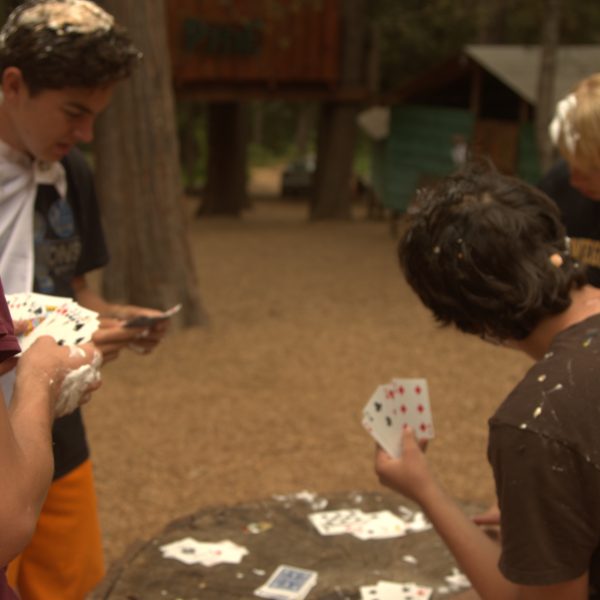
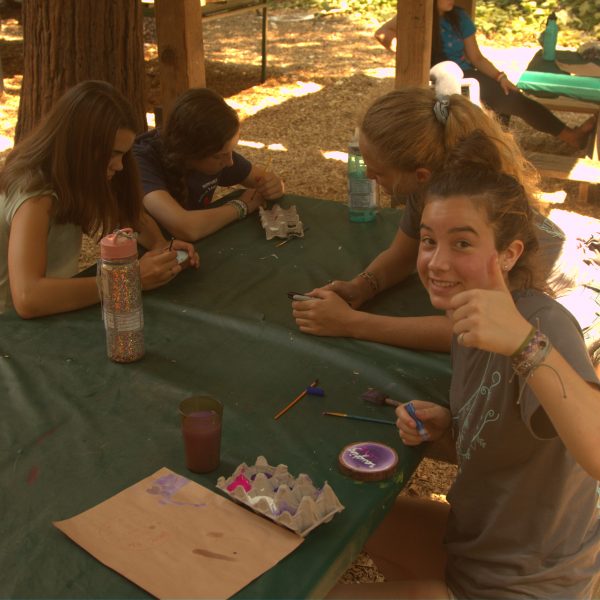
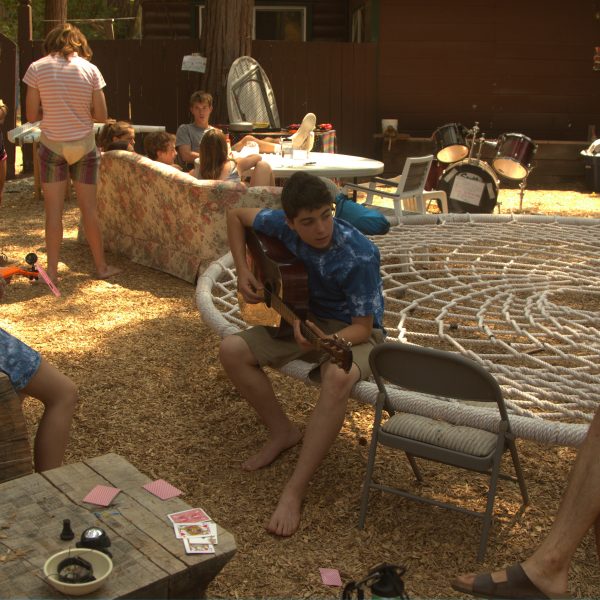
Story Experiences
Story Experiences are a bonus ‘activity’ that each cabin gets during their session.
Cabins express interest in about fifty different options at the beginning of the week (arranged in categories like Adventure, Random, Pleasant, Scary, etc). After a cabin vs. cabin evening program, the score helps to determine the order campers are assigned their experiences.
Experiences are run by all staff who are not responsible for a cabin that session. Staff often pair up or run multiple experiences. There is no set schedule for experiences to happen. Story Experiences are the most varied domain within MFGdom and can be tough to fully understand. Here are a few examples:
Cabin 1 gets “The Bathhouse Escape Room”.
This story experience is a puzzle-based escape room. Only one staff is needed to facilitate the experience and spends about an hour setting it up. The cabin will then usually spend either their Cabin Activity hour or Rest Hour to participate in the escape room.
Cabin 2 gets “Night of the Living Dead”.
The cabin gets a mysterious note that begs for their help and instructs them to meet in the forest that night. The cabin is attacked by zombified staff and chased through the woods. One staff member was in charge of planning the whole thing and recruited a few other staff to help as zombies. All the campers signed off on being okay with being scared.
Cabin 3 gets “A Wizard Tries To Kill You”.
Once a day (whether during a meal, wake-up, or Rest Hour) a very silly wizard makes very silly attempts on the cabin’s life by offering them suspicious potions or putting smoke bombs in their cabin. Despite the “Kill” in the title, the experience is not scary.
How to MASTER Story Experiences
- Story Experiences can be tough for some staff to understand or feel comfortable facilitating. Similar to playstations, an online introduction is made and staff express interest in potential Story Experiences to offer.
- The MFGs’ role is to make sure that each session has a varied list of offerings for campers to choose from and the staff capable of covering it.
- Ideally, staff who never have cabins (office staff, arts director, MFGs) offer the same experience every week and become very comfortable facilitating it. Village staff who do not have a cabin during a session may need more assistance in selecting and facilitating Story Experiences.
- It is not the MFG’s responsibility to physically prep Story Experiences. In theory, once an experience has been assigned to a staff, it is completely that staff member’s responsibility to run their experience.
Ideally, a returning MFG preps all staff with ideal Story Experience selections before campers arrive. Matching individual staff’s strengths, interests, and comfort level with Story Experiences is critical to a smooth transition of responsibility.
Each MFG must offer their own Story Experiences because they do not have a cabin.
In Summary:
Story Experiences are the smallest – and sometimes most chaotic – domain within MFGdom. MFGs are responsible for very little oversight once the experiences have been assigned, meaning that communication before assigning Story Experiences is essential.
